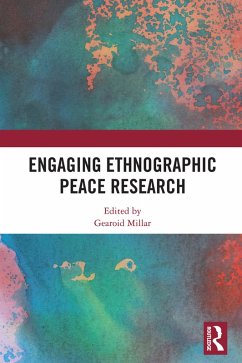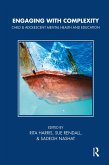While many have argued in the past decade that peace and conflict studies must engage more with local actors and communities, and scholars regularly describe the importance of local context and culture for building sustainable peace, there are substantial challenges methodologically to fulfilling this 'local turn'. Many peace and conflict studies scholars are inexperienced with methods appropriate for engaging with local communities, contexts and cultures, and many of the important institutions in the field, from key journals to important funders, exhibit a continuing preference for quantitative studies.
The Ethnographic Peace Research (EPR) agenda has recently been developed in response to these challenges and is one of the key avenues to providing a methodological complement to the more theoretically-focused local turn literature. This volume explores the application of the EPR approach in a number of post-conflict and conflict-affected societies around the world. While some chapters take a largely theoretical approach, most consider the practical application and the different kinds of methods that may be useful components of an EPR project. Together, the authors provide new insights into the benefits, challenges, and ethics of the emerging EPR agenda.
This book was originally published as a special issue of the journal International Peacekeeping.
The Ethnographic Peace Research (EPR) agenda has recently been developed in response to these challenges and is one of the key avenues to providing a methodological complement to the more theoretically-focused local turn literature. This volume explores the application of the EPR approach in a number of post-conflict and conflict-affected societies around the world. While some chapters take a largely theoretical approach, most consider the practical application and the different kinds of methods that may be useful components of an EPR project. Together, the authors provide new insights into the benefits, challenges, and ethics of the emerging EPR agenda.
This book was originally published as a special issue of the journal International Peacekeeping.
Dieser Download kann aus rechtlichen Gründen nur mit Rechnungsadresse in A, B, BG, CY, CZ, D, DK, EW, E, FIN, F, GR, HR, H, IRL, I, LT, L, LR, M, NL, PL, P, R, S, SLO, SK ausgeliefert werden.









